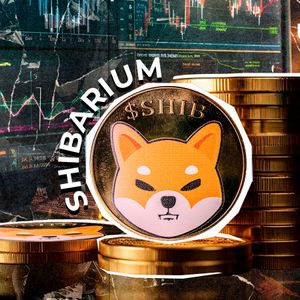Nvidia and Advanced Micro Devices (AMD) will soon begin to sell new, cheaper AI GPUs targeting the Chinese market. The decision was influenced by U.S. restrictions placed on China. The American Chipmaker will sell the B20 model instead of the H20, which has been put on hold pending licensing requirements, while AMD will sell AI PRO R9700, which targets AI workloads. The American chipmaker revealed in a report that the U.S. government would require a license to export its H20 AI GPU to China. The U.S. fears that H20’s most advanced AI chip may be used in a supercomputer in China to challenge the U.S.’s lead in AI. Nvidia faces licensing restrictions on its H20 AI chip According to the American chipmaker, the B20 AI chip is a downgrade compared to the H20 chip. The AI chip is built on Blackwell architecture for the Chinese market and is expected to be priced at $6,500-$8,000, compared to H20, which sells for $10,000-$12,000. The new compliant chips are expected to launch in July 2025. Nvidia’s forecast revealed that the licensing requirements would incur an $8 billion charge to the company’s revenue in Q2. Meanwhile, the company had already incurred a $4.5 billion hit in Q1 on licensing requirements. Due to the restrictions, the company said it wouldn’t manage to ship an additional $2.5 billion of H20 chips in Q1. Jensen Huang insisted that the U.S. government reconsider the export control policy, pointing out that the company has not yet achieved the expected results. According to him, Nvidia had a market share of 90% four years ago when Biden took office. The market share has, however, been slowing down, with Nvidia currently commanding 50% of the market. He revealed that the U.S. government wanted to slow down the development of Chinese AI. Huang believes that reversing the AI proliferation and export control policies should be complementary. He argued that the AI proliferation policy placed by the Biden administration had failed, and he hoped the Trump administration would reverse that. Huang also pointed out that even if Nvidia were cut out of the market, companies like Huawei would fill the gap due to their rapid growth in the industry. The American chipmaker anticipates $5.5 billion in charges in Q1 2026. The company’s stock was down 6% on Tuesday in extended trading. Currently, it is trading at $134.81, down by 0.5% today. Nvidia and AMD plan to launch conventional memory chips in China Trump revoked the three-level control plan to export AI chips and warned that any country using Huawei’s Ascend AI chips would violate U.S. export controls. The U.S. Bureau of Industry and Security (BIS) confirmed recently that the Biden AI rule was overly complex and bureaucratic and would stymie American innovation. BIS added that it would replace it with a simpler rule supporting American innovation and ensuring American AI dominance. Nvidia CEO Jensen Huang reportedly talked his way out of the new H20 licensing restrictions during a dinner at Trump’s Mar-a-Lago resort by committing to invest in AI data centers in the U.S. The company revealed on Monday that it would spend millions over the next four years on manufacturing AI chips in the U.S. “ The engines of the world’s AI infrastructure are being built in the United States for the first time. Adding American manufacturing helps us better meet the incredible and growing demand for AI chips and supercomputers, strengthens our supply chain, and boosts our resiliency.” – Jensen Huang , Nvidia CEO To comply with the restriction, Nvidia has been forced to sell conventional memory chips instead of high-bandwidth memory chips like H20. The U.S. government argued that the controls would prevent the alleged use of H20’s most advanced AI chips to train China’s DeepSeek , including its R1 reasoning model, which fared well compared to the U.S. AI market in January. Cryptopolitan Academy: Want to grow your money in 2025? Learn how to do it with DeFi in our upcoming webclass. Save Your Spot



















